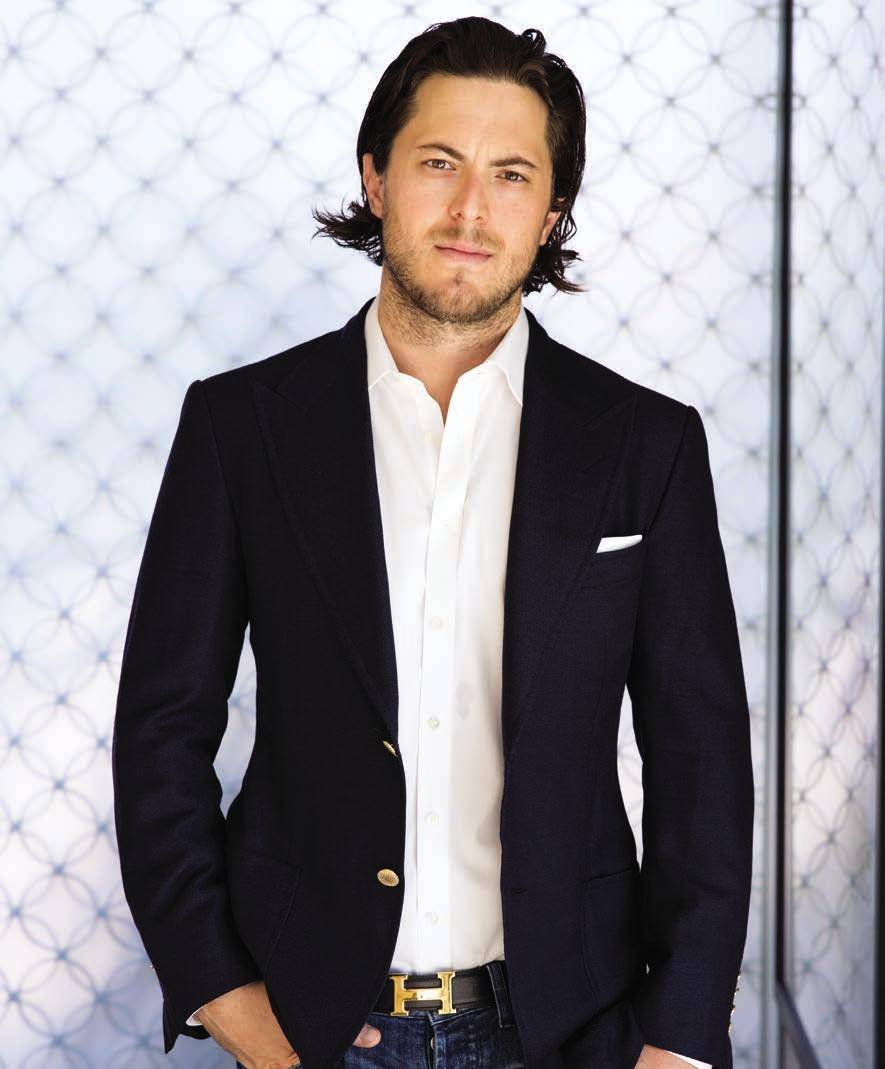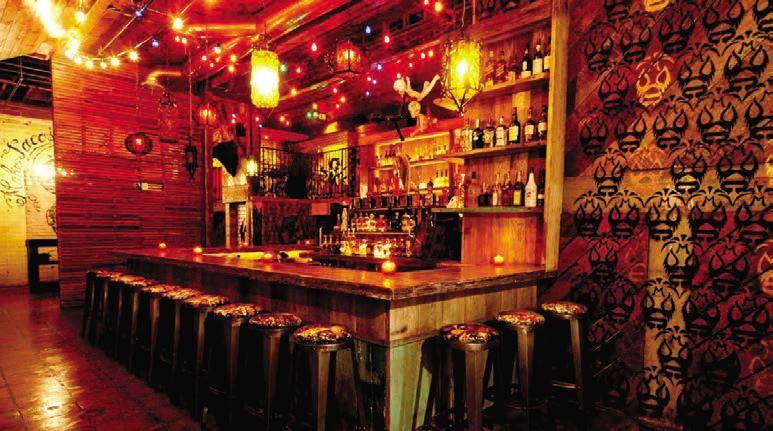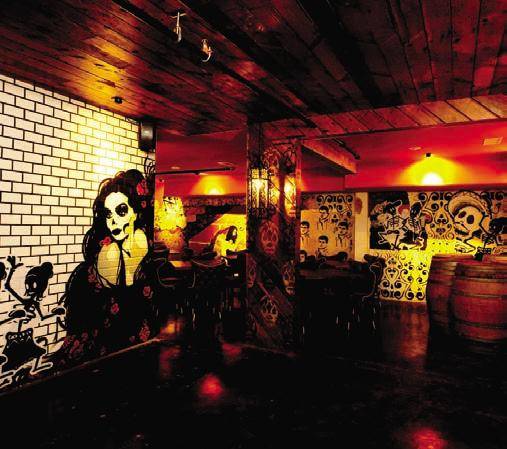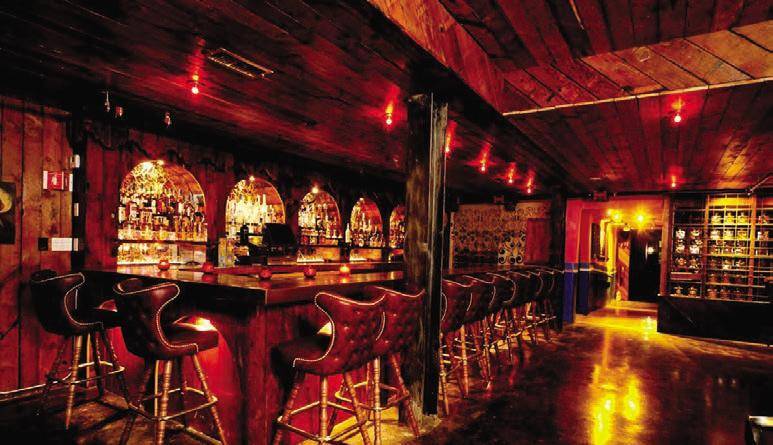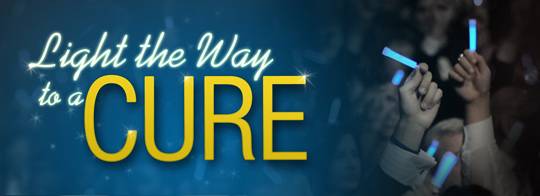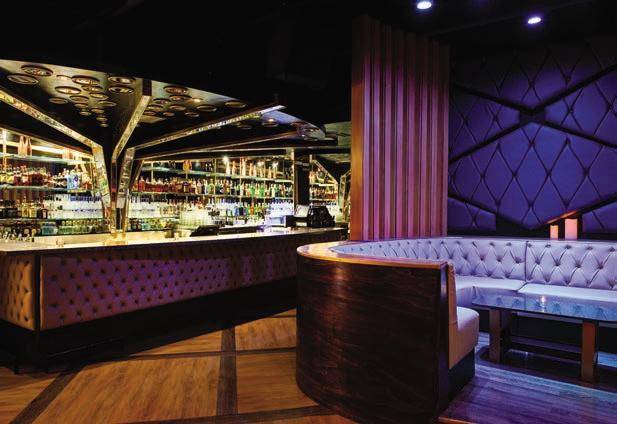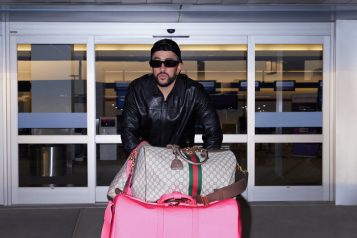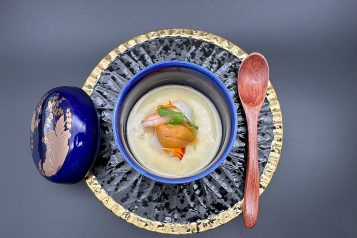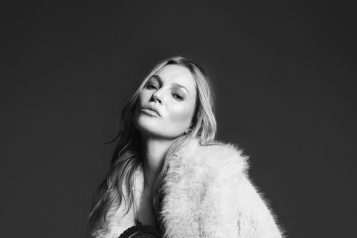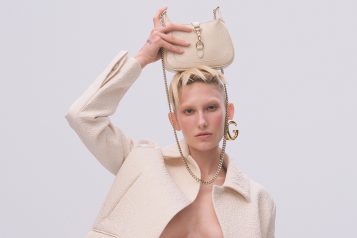Authenticity is of the utmost importance to Morton, who admits that he’s turned down at least 50 reality shows because he didn’t wanted to be labeled a phony or a fake.
The door to Harry Morton’s Hollywood Hills home is wide open. Inside, there are original works of art from Gilbert and George, Peter Beard, Chris Ofili, Rosson Crow and George Condo. The surround-sound system, now playing The Rolling Stones, is so clear that it feels like the band is actually present. The $5 million home, like Morton himself, is elegant, cool and just the teensiest bit bohemian.
Though he may look like the playboy prince of tabloid reports with his driveway full of cars, a rose gold Daytona Rolex on his arm and Tom Ford sunglasses perched atop a head of dripping, chin-length hair, the 31-year-old is, in fact, surprisingly serious. It is very clear that the most important thing in his world is growing his business, despite the fact that its name started off as a joke.
“If I could go back, I would change the name,” Harry muses now of his haute Mexican eatery on West Hollywood’s Sunset Strip. “It started off as a funny idea.; it was a joke at the time. But now we pride ourselves on our ability to evolve, and the food speaks for itself. We’re not trying to be a onetrick pony or a funny-named restaurant. The name isn’t even provocative anymore, it’s almost cliché. If we kept trying to play that hand it would be boring. The name is what it is. But at least it’s catchy and internationally known.”
Morton, the son of Hard Rock mogul Peter Morton, is planning on globally expanding his brand and has set his sights on London for the venue’s fourth location.
“Europe is where we’re going next. The market there is ready for us,” he says, adding of his decision to land in London: “I was born and raised there. My father started the Hard Rock there. My mother is from London. It makes sense.”
He is quick to note that this next step is in its developmental stages. “We’re exploring it all right now,” he says.
Morton is also currently exploring new opportunities for his other, more globally known establishment, the Viper Room. The nightclub formerly owned by Johnny Depp is, unfortunately, best known as the place River Phoenix died in 1993.
Of the rock club he says, “When I acquired the Viper Room, it was a neglected child that needed some polishing. Now we’re focusing on getting it back to what it was in its heyday. Our focus now is sexy rock. We went back and focused on what the authentic Viper Room was, and that’s paid off.” He adds, “I would love to get [Johnny] back involved.”
Perhaps Depp will rise to the occasion if Morton’s latest business proposal—a docu-drama about life behind-thescenes at The Viper Room—goes through. “We’re doing a reality show for the Viper Room, but it’s really more of a documentary,” he reveals, adding, “I don’t like to call it a ‘reality show’ because to me, a reality show is an exploitation of a brand.” He is currently shopping the show to a premium subscription cable network like Showtime because “the brand can’t be edited or watered down. There’s a lot of nudity, a lot of swearing. It will be about what it takes to make the Viper Room run. It has to be authentic.”
Authenticity is of the utmost importance to Morton, who admits that he’s turned down at least 50 reality shows because he didn’t wanted to be labeled a phony or a fake.
“There was that stage where [producers wanted me] for a show about being a rich kid, which was just stupid. I was absolutely like, never. I turned down about 15 of those ‘being an heir’ nonsense. shows Then there were about ten offers about being a bachelor, finding a wife or girlfriend— and then the shows turned into business opportunities.”
Though Morton’s life is tabloid fodder—he has been linked to starlets like Lindsay Lohan and Hayden Panettiere—he is adamant that doing a personal show would have destroyed the image of a businessman he’s worked so hard to create.
“For some brands, it’s good, but for mine it would have been the kiss of death,” he acknowledges. “I don’t need a reality show. A lot of those shows are designed to create problems. I don’t want that. Anything I do has to have a sense of authenticity, because otherwise it will smell phony.” Being genuine and offering true value are two concepts that Morton swears by, especially as they were lessons taught by his famous father.
“My dad always said that value is the most important thing. If you deliver based on what you’re charging, it’s worth it. To be part of something that’s really successful, every last piece has to be checked and managed and massaged and thought out. Success is going above and beyond and to constantly keep evolving.” Morton knows that to evolve, he must expand his brand through non-traditional outlets, such as food products, lifestyle gear and, most importantly, music.
“I grew up with the Hard Rock, so music is the soundtrack of my life. It’s always on,” he says now. “Music is an integral part to my brand. It’s the heartbeat of everything I do, from the Hard Rock to Pink Taco to Viper Room. Right now we’re developing a Latin record label. My little brother is helping me find new artists. We do a lot of collaborative efforts with DJ’s as well; we’re exploring a lot of different avenues right now.”
He’s not joking. In addition to the business plans in his pipeline, Morton is looking into building another mansion in the Trousdale area, arranging a trip to India and working on improving his yoga skills.
Of the latter he reveals: “Yoga definitely forces you to slow down, which is necessary in my business. It puts things in perspective.”
Morton’s spiritual side is unexpected, but also unsurprising given his utter refusal to be pigeonholed.
“I’m a little bit nostalgic,” he explains. “I’m not trendy or faddy. I play it a little bit safe. I love going to the Polo Lounge at the Beverly Hills Hotel, but I’m just as happy going to Barneys Beanery. I love the Sunset Tower, but I also love In & Out Burger.”
He makes no excuses for who he is or what he likes, from the tongue-in-cheek name he chose for his restaurant to the “Karma” tattoo on the inside of his wrist that he had inked as a teenager.
“I got it done a long time ago, but I’ll always believe what it means to me: You better watch what happens, because what goes around, comes around.”
To all those who have referred to the enigmatic Harry Morton as a playboy prince, you’ve been warned.







